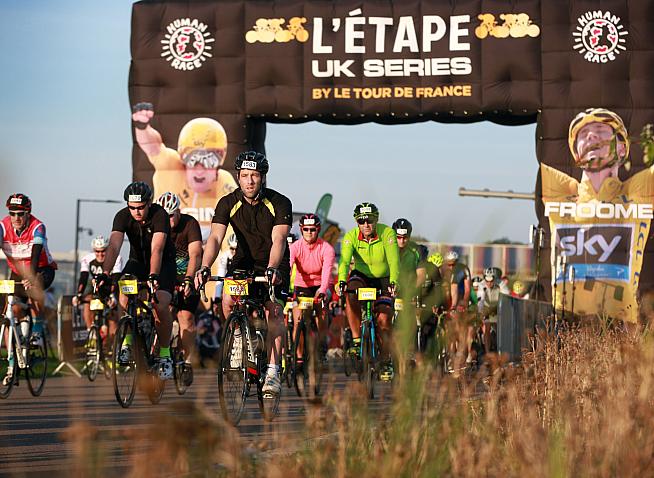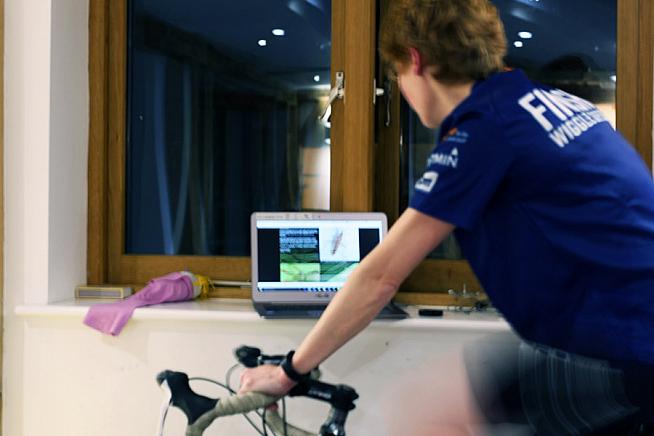There is no need to stress just how little has gone to plan in 2020, with many of us unable to compete at the events we had trained for or even train at all in some cases - but there is a sense of the end being within sight.
As a result, more and more of us are now looking ahead to 2021 and reassessing just what we want to challenge ourselves with, from regaining lost fitness to seizing the opportunity to take on an event we have always dreamt of doing.

Whatever your motivation and goal might be, there is no doubt that you will need to begin creating a training plan to understand what you need to do in order to arrive in your best possible shape and condition.
Here we take a look at the main considerations to bear in mind when you begin creating your event training plan.
Available Time
The first port of call when designing how you are best going to train for your event is to understand how much time you have ahead of the big day, as well as the time available to you each week in order to train. When viewing this alongside your current fitness or previous experience, you can begin to appreciate how feesbile your goal is and whether or not it is going to be too soon for you.
For many people, a 12 week training plan is a solid timeframe to build foundational conditioning and then finesse aspects of your performance in order to complete the specific attributes of your goal. If this sounds appropriate and feasible to have a regular amount of hours to train each week, then we can look at the next key factor.
Be Consistent
Whether you are fortunate enough to have hours free each day to train or are left to make the most of a morning commute and lunchtime workout, you must be consistent with the time available. Skipping sessions and trying to compensate with longer or harder workouts at the weekend is not going to produce the same results as training daily.
Depending on what your chosen event might be, there is no doubt that a 30-45 minute specific session is going to do you more good when completed consistently, than spending aimless hours at the weekend just to clock the minutes up. In essence, stimulating your body every day for 45 minutes is going to promote greater improvement than 2 hours once a week.
Mix Things Up
It can be tempting to build your entire training plan around the overarching aspect of your event, which might be a long distance or high pace for example, but doing so will be limiting in your eventual condition ahead of the day.
Throughout your event, your body will need to utilise different aspects of your fitness profile in order to sustain performance at different intensities, meaning you should also have a training plan which reflects this.
Rather than treating training as another hour of running, swimming or cycling to tick off, ensure that there is a clear purpose at the very outset of each session; threshold efforts, VO2 max and sweetspot for example. Doing so will produce a well rounded and balanced improvement, ensuring you develop a better base level, while then being able to focus upon the specificity of your event too.
In The Red
If you look at your available training time before the event or your current condition, it can make you believe that the only way you are going to arrive in acceptable shape is by training as hard as possible in every session. Of course, this is not going to work.
Yes, for those limited on time per session, you are going to need to stimulate your body with efforts hard enough to promote adaptation, but that does not mean training yourself into the ground. Training at too high an intensity all the time can be a gruelling lesson to learn, as a state of diminishing returns becomes apparent, with likelihood of injury and illness increasing.

Review the time available each week to train and allocate a sensible amount of high intensity work relevant to your event, but be sure to lessen the intensity if wishing to increase volume too, as doing both simultaneously will only serve to create fatigue.
Recover Hard
Even if your total hours spent training look small compared to others around you, if you are training consistently and at the appropriate intensity, then you will need to remain mindful of how important your recovery between sessions is. Compared to those with more hours available to them, it is likely that you will be spending more time at high intensities, proportionally speaking.
Adaptation occurs during rest, therefore you must understand that doing nothing is as important as being active, however difficult it may feel when worried about wasting time. Your training plan is there to guide you, but also as a buffer to prevent overtraining, something which will rapidly diminish your performance and often sees athletes caught in a vicious cycle of training harder for gains they cannot make unless they rest.
Recovery sessions are meant to be unbelievably easy, to the point of boredom, but you must resist the urge to up the tempo or introduce efforts when feeling good. Additionally, sleep is key, so ensure that you do not miss out on your regular hours, especially after tough workouts.
Keep Track
Most importantly of all, keep a detailed record of your training and how you feel in yourself, this will help to continually shape your plan as you progress. Though the key themes outlined here are to help create your plan, it should not be set in stone, as only through the active process of training do we often learn what needs to be done.
From tracking your metrics using GPS devices and smart trainers, to keeping a traditional diary, be consistent with whatever you choose to best understand how your plan is working.
For those seeking greater insight into creating a training plan for events and races, Blackzone Coaching offers tailored training programmes from as little as £90 a month. Simply get in touch today and discuss how 2021 could look for you.
Find out more at Blackzone Coaching.
0 Comments





